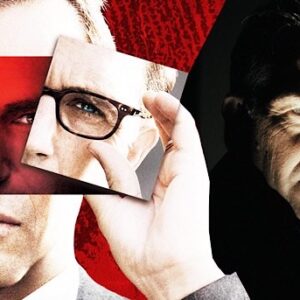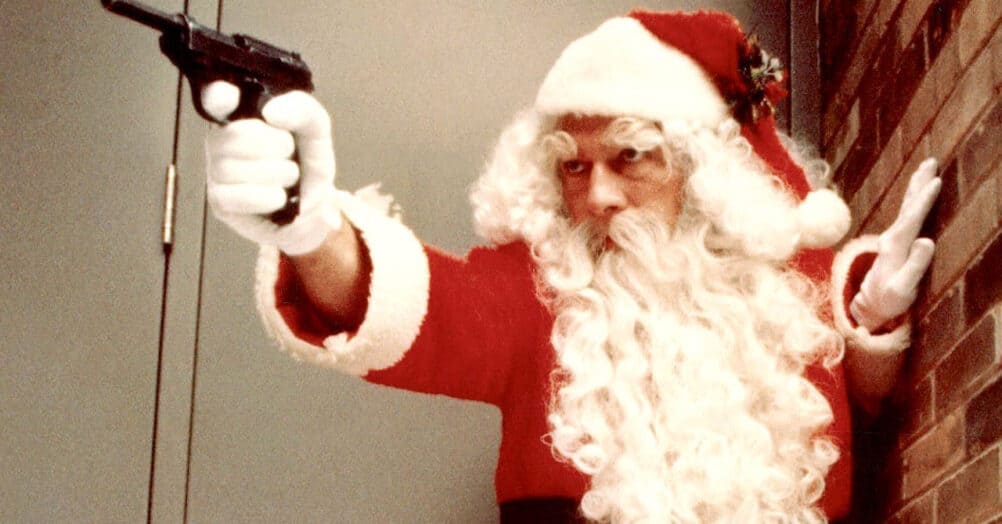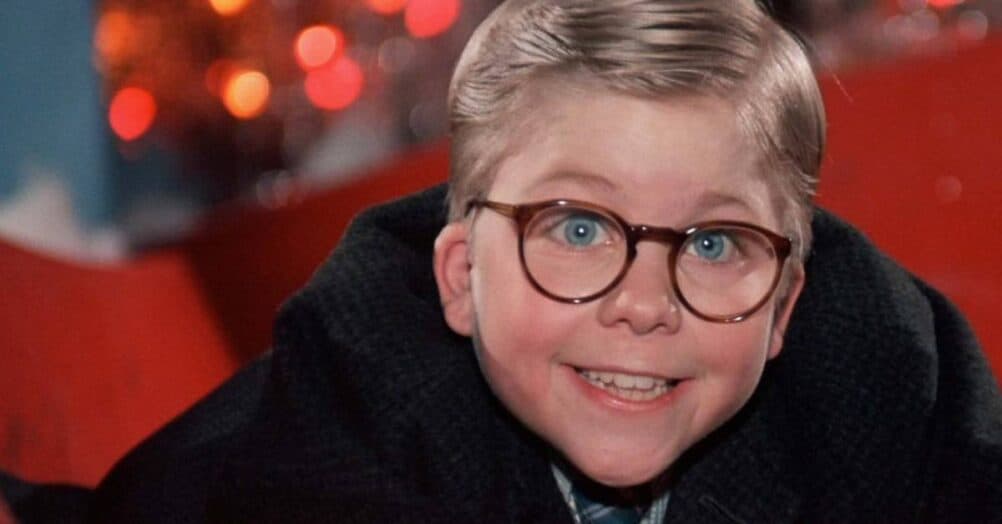
As
most movie fans know, “playing against type” refers to when
actors portray characters dramatically different from those
they’ve played before. In the case of Kevin Costner, it means
playing something other than a baseball player or cowboy.
With
his latest project, MR.
BROOKS,
Costner plays arguably his darkest character yet: a typical family
man who happens to enjoy murdering random people, just for the fun
of it. He’s good at it, too — aided only by his imaginary pal
Marshall (played by William Hurt), he’s sent more than a few
unfortunate folks to early graves without coming close to being
caught.
Not
exactly FIELD OF DREAMS, huh? Costner deserves props for consciously
seeking out more challenging roles now that he’s no longer an
A-list talent, even if he did give us that dreadful flick DRAGONFLY.
But hey, at least he’s not pulling a Stallone and reviving
long-dead franchises in an effort to stay relevant. Last week
Costner stopped by Le Meriden Hotel in
Beverly Hills
to talk about his experience making MR. BROOKS. Check it out.
Kevin
Costner

What
made you decide to play such a dark character?
The decision was pretty simple. The movie, I thought, was the star.
I thought the writing was the star of the movie. While I didn’t see
myself like that person, I thought, “I could do this.”
When I make up my mind, first and foremost…even though you have to
professionally cover movies, I’m sure deep down you do love movies
and probably love movies when they surprise you. On paper, I thought
(this movie) had all of those moments — if we embraced them and
went for them. I understood that it would be seen as a departure. I
understood all of the things that would come with it, but I still
felt like, if I’m going to make a life of making movies, then I
should try to make different kind of movies. And this seemed to fit
in a positive way.
Did it occur to you that you
might also want to direct this?
I thought about that, but when I realized what the pedigree of the
project was — that the writers who wrote it wanted to direct it —
we had a discussion about that. I could’ve done that, but in this
instance it was important for (Bruce Evans) to direct. I’ve worked
with a lot of first-time directors, writer-directors, and I thought,
“I’ll give this a chance.”
Did you always know you were
going to produce?
I knew without a doubt that I would have to do that. I also knew
that I would have to have final cut on it, because if you like the
movie odd – the odd things about it — I knew those things that
would be cut first. If you don’t like blood, blood would be gone. If
you don’t like this, that would be gone. They ask audiences,
“What do you like?” “I don’t like this.” But I
thought that this piece was dark. It’s insidious, even though we
ashamably find ourselves laughing at some moments, the oddity of it.
I felt that it needed to be true to itself. If no one else wanted to
make this movie and I wanted to make it, why would I let anybody try
to flatten in out and make it more generic? So while I know some
longtime people who’ve enjoyed my movies might be offended by this,
might think it’s too harsh, I get that, and I accept that. But I
don’t want to cater to my audience; I just want to feed it. Take it
or not take it. It’s an honest effort.
Were you at all familiar with
Dane Cook’s standup work before joined the cast?
I wasn’t familiar with his standup, and I’m actually glad because I
don’t completely understand his standup all the time. But I
understand him, and I understand his desire to not be pigeonholed,
be conformed. He read for me. He read for this movie. He did all the
things that someone who has a bigger idea about their career does.
They want to be a part of something unique. He did, and that’s why
he got the part. And he was sensational in it.
Did you see a little bit of
Mr. Brooks inside yourself?
The thing that we all see in Mr. Brooks is that we would all go
defend our daughter, that we would go kill for them. Mr. Brooks
isn’t looking for forgiveness. “Don’t you see that I’m a nice
guy?” No, he’s not. He has a disease. When that disease isn’t
working, he is a nice guy. But the families that he’s dismantled,
both the ones that have died and the boat wake that comes after,
that kind of thing that families are destroyed forever — mothers,
fathers, brothers, sisters — we don’t really deal with that. We
have to know in our hearts that’s what it is. That’s why we can’t
ever forgive him.
But
what Brooks is successful at, I think, is that it creates a certain
kind of empathy. And empathy always comes in our life when we have a
level of understanding. You may not like the serial killer, can
never forgive him, destroyed your girlfriend’s life forever, blah
blah blah, I hate him, I wish he never was born. You might know him,
and know that he was assaulted and abused since he was
three-years-old. You can’t forgive him either, and you can’t say
anything to her, but in your heart you go, “That poor fucker
never had a chance.” You have empathy because you have a level of
understanding of him.
And
so in movies, we can create a level of understanding if we choose to
invest in the character, and that’s what made Mr. Brooks stand out
to me as a serial killer movie, because I don’t like serial killer
movies. I don’t like scary movies. I get scared. I’m
uncomfortable. I don’t like roller coasters and shit like that. I
don’t like being scared. It’s not an adrenaline rush for me. So Mr.
Brooks really had to pass a lot of things for me to even want to be
a part of it. And it did.
Were you disturbed at all
when you first read the script?
No. I was in the safety of my own little couch; I knew no one was
going to get me. Look, I like writers. And I like protecting
writing. And I like seeing writing find its way to the screen. If I
was going to be scared at all about Mr. Brooks, I would have been
scared if somebody else had final cut.
Were you worried that the
character of
Marshall
might overshadow your own performance?
I knew it was a really flashy role, and I very often take movies
that have scene-stealing roles all around me. I relish that; I think
that’s important for movies. I don’t get scared by that stuff. I
encourage the actors to be really good around me. I want that to
happen, and I want them to do it inside the lines of the movie. So
when I see a great role, I want to go for a great actor. A great
actor recognizes a great role. It just raises the whole level of the
movie. It is a pleasing role and sometimes the temptation in
American movies now, the conventional wisdom is they’ll ask you what
scenes you liked the worst, what seen did you hate the most.
And
you’ll tell them. “What scenes did you like the most?” In
modern day filmmaking, that scene you hated the most just goes
flying out of the movie But that doesn’t mean it should have. It
gives the movie a balance. They might ask you about characters and
you say, “Well, I really like
Marshall
the most.” Then the executives go, “Let’s write some more
scenes for
Marshall
.” I think
Marshall
is in there just perfectly. Just perfectly.
What was it like working with
William Hurt?
It was fun. I’ve known William because of The Big Chill. We both are
rehearsal-oriented actors, and writer-driven actors. So it fit into
our game really nicely.
Was
Marshall
based on anyone Mr. Brooks’ knew in his past?
[Speaking from his character’s perspective] Yes. I found
Marshall
when I was twelve years old in a book of children’s dreams, and he
would play the black knight, an evil person. But I liked him in the
book because he was kind of cool. I liked him so much that I was
afraid he was going to die in the book, so I never finished it. And
my father used to discipline me with the idea that, if I wasn’t
good, the black knight would come and get me, that he actually hid
in my closet. And like any young man, I eventually challenged my
dad’s theory and opened that closet, and there was my imaginary
friend. And he was not scary at all to me. So he’s been with me as
my alter-ego. And that began when I was twelve years old.
Did you look at Bruce
Evans’s previous film before signing on?
Well, I didn’t look at his other movie. I didn’t want to because,
once I committed to him as a director, I wanted to try to support
him, and I didn’t want to get panicked. I mean, I’d heard different
things, but I didn’t want to jade that. Once I gave him my word that
he would get a chance to direct it, I wanted to back that up. But I
also wanted to protect the movie by keeping final cut.
What do you typically look
for when someone sends you a script?
Just fresh air. Just something that seems highly original. I would
never do this movie it was pitched to me. But I would never have
done Field of Dreams if it was pitched to me. It takes a writer that
really has his muse working on his shoulder, and you go wow, this is
an incredible window they’ve found into this subject. Thirteen Days,
for instance, the window into that story was through Kenny
O’Donnell, not Jack’s point of view or Bobby’s point of view. It’s
hard, writing. It’s not easy. It’s an art form.
When you write, where do you
get ideas? Do they just come to you?
It just comes to me. I don’t consider myself a great writer, but I
feel like I recognize a great idea, and I that I protect great
writing. I think that’s my talent.
You don’t think that
writing is respected by
Hollywood
?
I don’t think it is. The minute you’re willing to ask an audience
what they think about the movie, then nobody cares about the
writing; you care what they think. And I think that’s foolish. But
unlike conventional wisdom, I don’t go out and make a movie when the
script is 60% just because I got the actor now and the director and
I think the job’s done. I’m anal. I don’t even go out to actors
until my script is 100% done, and I don’t want anybody changing it.
Annette Bening and Robert Duvall didn’t change a line on
Open
Range
. Why? Because I was sure that it worked. We didn’t change any
lines — William Hurt, Dane Cook and I — in our half of the movie.
Not a line.
Because
I was positive it worked. Yeah, there’s blood. There’s a lot of
blood. But that’s what this movie was about. But there’s a lot of
tenderness in it, too. I just…what is everybody so afraid of? Not
being number one at the box office? Well, we ain’t going to be.
We’re not even going to come close. But we can be a movie that’s so
true to itself that you might want to take a friend back to it. Or
you might not ever want to see it again, because of what it is.
I’m not saying it’s an easy thing. But somebody else it might
speak so loudly to — “I want you to see this movie.” And
I’m proud that those moments are in there that would drive you back
to it. I think it has classicness.
Can you say anything about
the western you’re working on now? Will you be using the same editor
from
Open
Range
?
I’ll probably use the same guy, yeah. It’s just a good cowboy movie
about friendship. There’s a code. It’s done. It’s written. It’s
100% done. I’m not sure… people aren’t dying to make ‘em. I’ll
just have to figure out how to make it. I’ll have to mortgage
something else.
What do you think about Brian
De Palma’s making an Untouchables prequel?
No.
I don’t think about it at all. I mean, I think about it now because
you brought it up.
Because it was an important
film for you.
It was a very important film to me. It was very important to Brian.
I’m not surprised that they’ve circled back to it to squeeze some
more out of it.
Questions?
Comments? Manifestos? Send them to me at [email protected].


















Follow the JOBLO MOVIE NETWORK
Follow us on YOUTUBE
Follow ARROW IN THE HEAD
Follow AITH on YOUTUBE